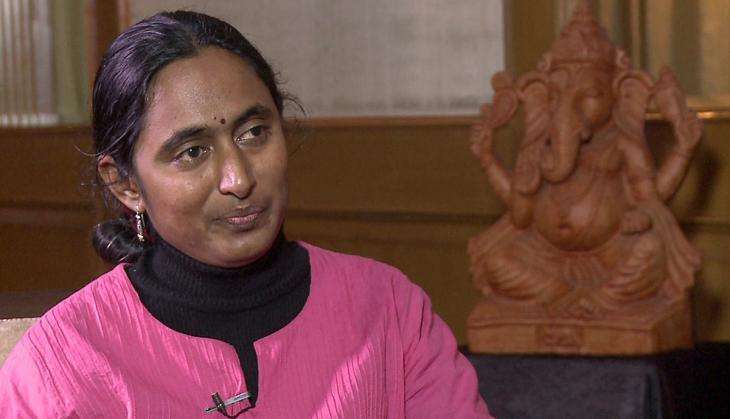
Women's clothes are always a matter of debate. Be it France's burkini ban, or Indian cabinet minister Mahesh Sharma's constant need to dictate what women must wear, there's almost no escaping scrutiny when it comes to women's attire.
It becomes all the more interesting when the scrutiny is pointedly not extended to men. In this interview, Kavita Krishnan, Secretary of All India Progressive Women's Association (AIPWA), talks to Catch about this unending scrutiny, the different yardsticks with which men and women's clothes are measured, and how we can get politicians like Mahesh Sharma to stop dictating a code of conduct to women.
Also read - The issue is sexual harassment and trolling. Not 'free sex'

DS: Why do you think women's dressing is such an important part of how we're judged? Do you think it gets worse in India?
KK: I think it's bad pretty much the world over. Women's clothes are seen as linked with their moral calibre and sexual morality, so women's clothes are always a loaded issue in countries all over the world. India is no exception there, but India is not special either.
DS: Yeah internationally too, with France's burkini ban and Instagram's no nipple policy, it's always women's clothing that's controlled first.
KK: Yeah, if you want a few examples: the idea that a Canadian cop can say the quote that started off the Slut Walk protest... This was a Canadian cop who said she was dressed like a slut, so she might get raped.
In France, with the burkini ban, the idea that covered dress is something which is some kind of insult to French culture. So, what it that? You're loading some kind of national burdens onto women's bodies and women's clothes. And all of them are burdens that take away from women's autonomy.
DS: So attire, especially for women, is always political then?
KK: Attire has a gendered [perception] especially related to national morality and sexual morality. It's very useful to look at how various countries have looked at women, women's clothes and their sense of nation [in this regard].
In India, a lot of it can be traced back to the anti-colonial struggle...
DS: Yeah, exactly. But interestingly men's clothing in India never faces this problem, right? What is seen as 'western attire' is completely acceptable for men in India but not for women?
KK: The political symbolism of men's dress, when you look at it, is quite interesting. Ambedkar dresses in a suit. That is valourised in the Dalit movement and there's a thought behind that. It is an assertion of Dalit emancipation. But the same kind of sartorial symbolism of western clothing is not applied to the women from the oppression sections.
There you'll find the idea that western clothing is somehow elite. In fact, this is something you'll find across the board in both the right-wing ideology as well as the left or within the Dalit movement. The idea that a 'pretty' woman is elite is something I've heard political leaders, both women and men, utter across the spectrum.
Also read - 'Rape is no joking matter': Kavita Krishnan & Sona Mohapatra on Salman Khan
DS: So women's dressing is suddenly an equaliser?
KK: Yes, yes. Even those who are able to understand that there's a certain assertion linked to that kind of clothing when it comes to Dalit men [don't extend it to women]. And it is not extended because there's no sensitivity to that.
I think it's completely on the dot that it applies to [oppressed] men but when women do it, the ease with which they can be branded elite...
Just this morning I saw an email from Shehla [Rashid], the outgoing vice president of JNU, which says that she got called 'elite' because she drives a car. And she responded with, "Well hullo, in Saudi Arabia I wouldn't be allowed to drive a car, so it's a big deal if I do."
DS: Union Minister Mahesh Sharma recently said that foreign tourists would be given a do's and don'ts list at the airport. To women though, he specified that "aap chhoti jagah par raat-waat ke time akele na niklein, skirts na pahnein". While this isn't Sharma's first offensive comment, do you there's absolutely anything that can be done to curb such mentality among our leaders?
KK: See, I think there are two things here. One is that I don't feel there should be criminal laws for this and I don't particularly think that's the answer. You can't really criminalise sexism even though in a way these comments perpetrate violence against women.
The other is that, perhaps, some kind of public [intervention] is needed. I mean if there's such a strong tendency to talk about the codes of conduct for women, instead we should ask for a political code of conduct. A code that political parties and the Parliament adopt, where you say that 'We will not use these kind of gendered tropes. We will not hand out this kind of rape culture remarks that blame women for violence.'
And similarly, we can extend that, to specific kinds of comments about Dalit women, caste of political leaders etc. Let's not have a vague notion of what's unparliamentary and so when that's violated, let there be a public discussion on how they may have crossed that line. In political parties you can have two strikes and a punishment, and say a third strike and you shouldn't hold those posts anymore.
Also read - India at the UNHRC: deafening silence on women's issues
DS: In fact, a lot of the debate on women's clothing starts with men. Amitabh Bachchan is currently being celebrated in the news for writing a letter to his granddaughters where he says, "Don't let anyone make you believe that the length of your skirt is a measure of your character."
Do you think a man and a privileged man such as Mr Bachchan can understand how women's bodies are consumed?
KK: I haven't read the letter but there's one thing that occurs to me. There are several layers here. This is a public figure saying something in a certain context and while I haven't read the letter, I can say that there's a certain kind of tendency for men to be this kind of paternalistic and give advice. And they may be well meaning older men, but older women, I've found, are the people I've really been inspired by.
These women don't need to say such things to you. Older women don't let age get in the way of them [talking to you]. They're not blessing you or giving you advice. They are really sharing with you what life as a woman has been.
T 2370 - #ABletter .. my letter to my grand daughters .. so humbled to receive all your responses .. !! Thank you !! pic.twitter.com/bd3NdI7vrD
— Amitabh Bachchan (@SrBachchan) September 5, 2016
KK: I can think of a lot of older women from whom one has learnt these things from. So while [Amitabh Bachchan's] advice is good, achha hai, better than giving instructions to women on how to dress, I'm always a little wary of this kind of gyan giving.
Why can't they write letters to men in the family? Even in my political life, I'd once written a note about women's movements and challenges, and an older man had commented that 'Women are doing such wonderful things and we should say, aage badho, and good stuff!' And I'm like, "They are fighting. Support their struggle and don't give gyaan on how they should move ahead."
First published: 10 September 2016, 1:41 IST







![BJP's Kapil Mishra recreates Shankar Mahadevan’s ‘Breathless’ song to highlight Delhi pollution [WATCH] BJP's Kapil Mishra recreates Shankar Mahadevan’s ‘Breathless’ song to highlight Delhi pollution [WATCH]](https://images.catchnews.com/upload/2022/11/03/kapil-mishra_240884_300x172.png)

![Anupam Kher shares pictures of his toned body on 67th birthday [MUST SEE] Anupam Kher shares pictures of his toned body on 67th birthday [MUST SEE]](https://images.catchnews.com/upload/2022/03/07/Anupam_kher_231145_300x172.jpg)






